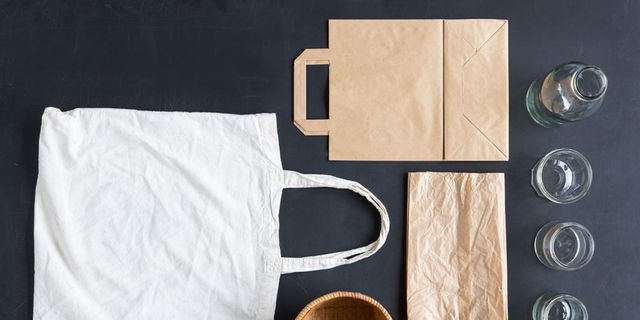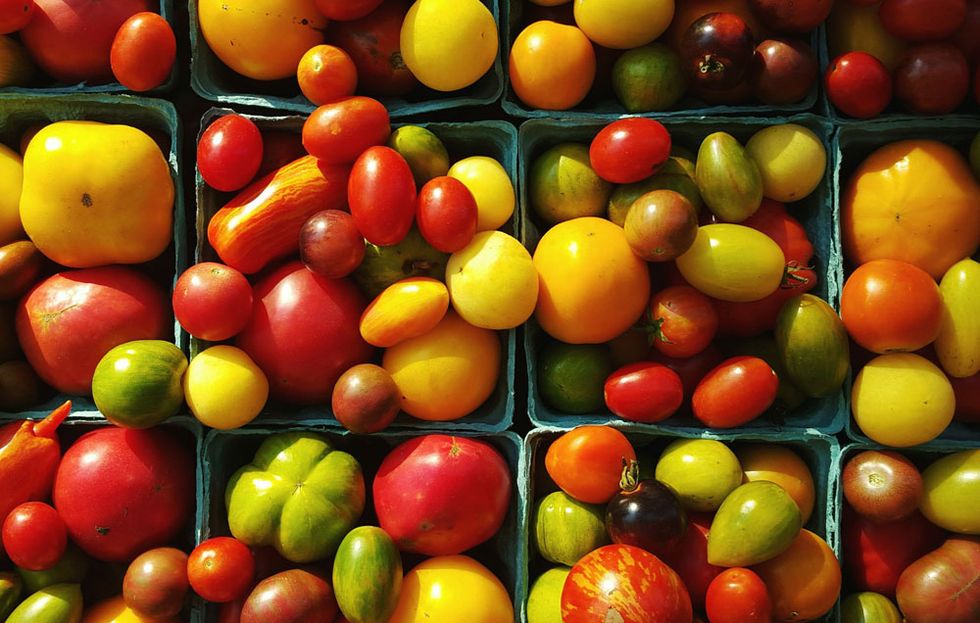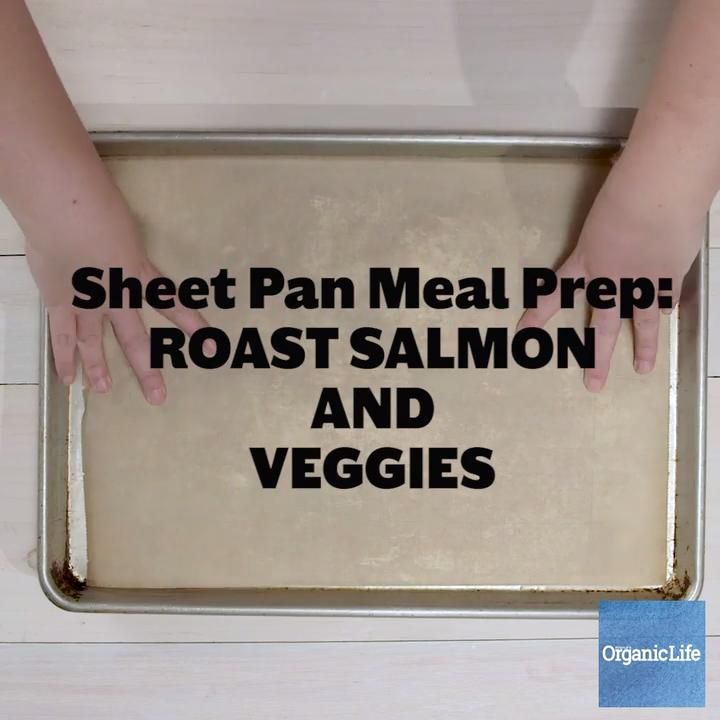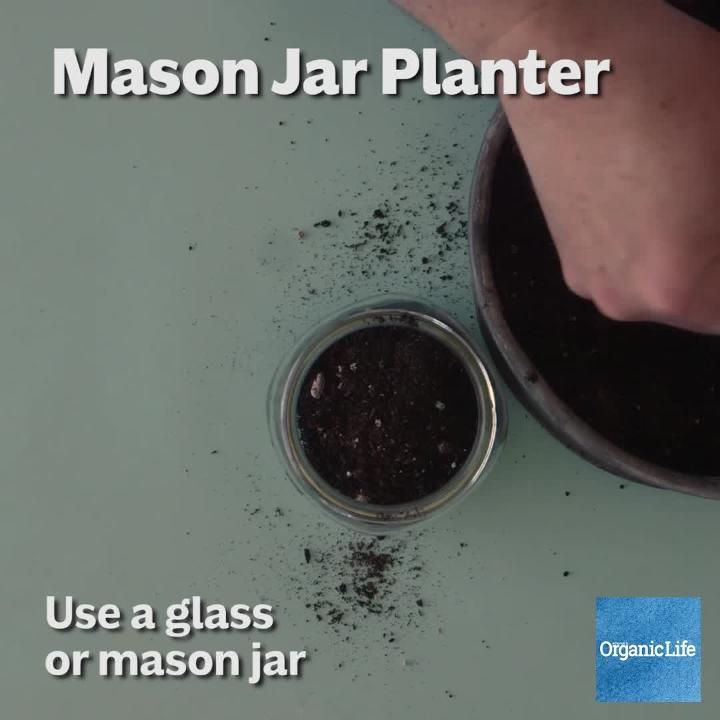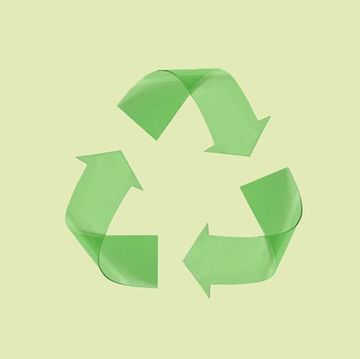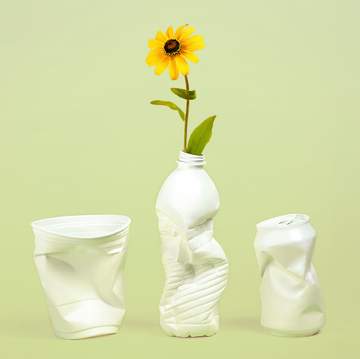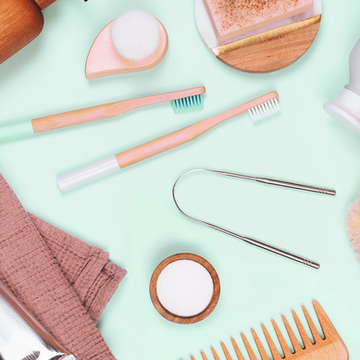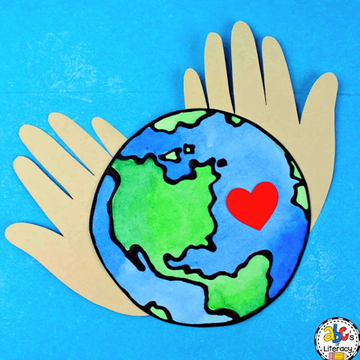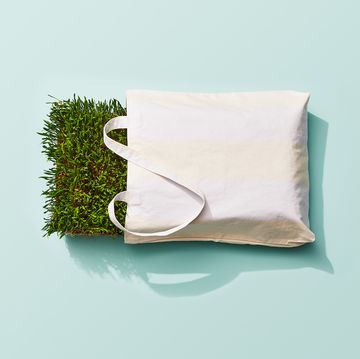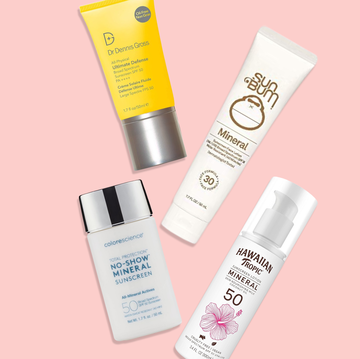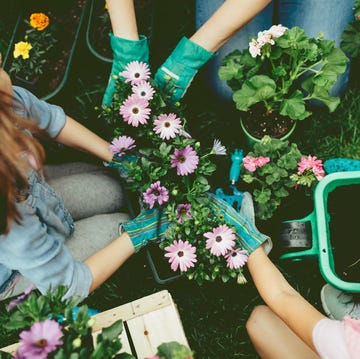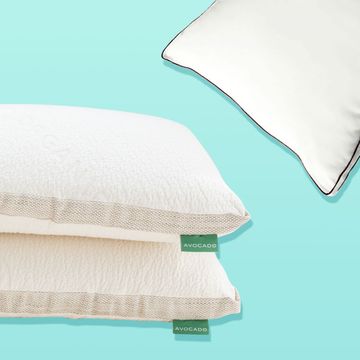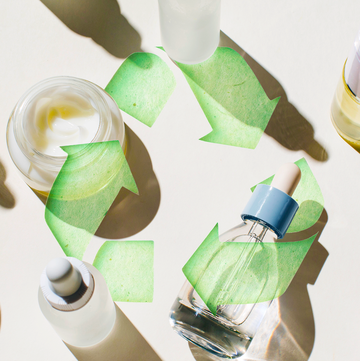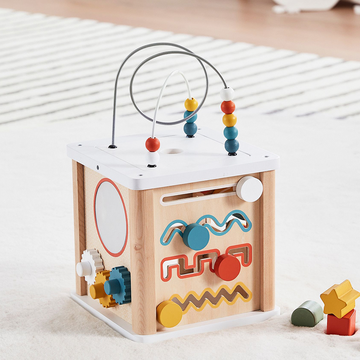‘Zero waste’ can sound intimidating and unattainable. But you don’t have to fit a year’s worth of trash into a small jar or pledge to never throw anything away for the rest of your life to call yourself a zero-waster. “This lifestyle can seem overwhelming because of the word ‘zero.’ Zero is terrifying. No one can do that,” says Kathryn Kellogg, who created the blog Going Zero Waste. “But it’s really a whole bunch of tiny steps that add up to massive impacts. My advice would be just to pick one thing to start and do it.”
(Slash your cholesterol, burn stubborn belly fat, solve your insomnia, and more—naturally—with Rodale's Eat For Extraordinary Health & Healing.)
In addition to helping to chip away at the 258 million tons of trash that Americans produce every year, a waste-less approach to life will have the added bonus of some immediate personal benefits. The first place you’ll probably feel it is in your wallet: Kellogg estimates that she saved about $12,000 over two and a half years by no longer buying single use products, like paper napkins and aluminum foil, and packaged convenience food.
And cutting out all those products means shorter shopping lists. “You really have no idea how much time you spend shopping and working to buy more stuff,” said Kellogg. “When you cut all of that extra stuff out of your life, you have a lot more time and freedom to do what you want to do.”
Plus, ditching packaged processed foods is definitely going to have a positive impact on your health. Celia Ristow, the blogger behind Litterless, says that cutting out packaged food definitely improved her diet by forcing her to eat whole foods and seasonal produce. You’ll eat more whole ingredients and less sugar and sodium, too, and you’ll also likely reduce your chemical exposure by consuming fewer foods wrapped in plastic and other disposable packaging. Win!
Related: Fast Food Packaging Found To Be Just As Nasty As Fast Food
Ready to start becoming a zero waster yourself? Here are some tips to help you incorporate zero waste habits into your life so that you can lessen your personal impact on the environment, save money, and be a healthier person.
Unbag your produce
Produce sold at farmer’s markets is typically unpackaged and sticker-free. Bring your own produce bags or carry home your loot in a reusable grocery bag instead of individually bagging your purchases. Reusable produce bags can help wrangle green beans and other small items. Skip the pre-cut or packaged produce since plastic and Styrofoam trays are difficult to recycle and thin cling wrap and plastic bags will end up in the trash.
Related: 14 Vegetarian Foods That Have More Iron Than Meat
Bring your own bottle
By now you know that bottled water is a drain on the environment and your wallet. Carry around a reusable water bottle instead and fill up from the tap. (We’re obsessed with these stainless steel insulated ones.) If you are worried about the quality of your tap water, check out the Environmental Working Group’s city water quality reports so you can easily find out what’s in your water.
Want to filter your water? The EWG has a guide to help you choose the best water filter for your sink, too. You can also pick up a plastic-free bamboo charcoal stick (that comes in recyclable packaging) to pop inside a water pitcher for easy filtration.
Pack your favorite mug
Disposable coffee cups are almost as bad as bottled water when it comes to the environment; most are lined with plastic, meaning they cannot be recycled or composted. Bring a reusable coffee mug or mason jar instead. Many coffee shops will even give you a discount for bringing a cup. Even better, your coffee will still be hot (or cold!) by the time you sit down at your desk.
Related: Why I’m Completely Obsessed With My Travel Coffee Mug, And You Should Be Too
Embrace reusable containers
Say goodbye to plastic bags and other single use containers. Instead of ziplock bags, invest in some stainless steel or glass containers with good lids (like these) to store leftovers in, or reuse old jam and sauce jars. Consider carrying a glass container or Mason jar in your bag when you go out to eat so you can pack up leftovers without resorting to the usual Styrofoam box. Beeswax wraps are a great substitute for aluminum foil or plastic wrap when it comes to covering bowls and wrapping up sandwiches.
Related: 7 Plastic-Free Ways To Pack Your Meal-Prepped Lunches
Use cleaner cleaners
Replace your worn out plastic sponge with a cleaning rag made from natural fibers. These hardworking cloths will last much longer than a sponge and clean just as well, if not better. Use a compostable scrub brush for heavy duty cleaning, and opt for simple homemade cleaners. Also, don’t think you need a different cleaner for every surface in your house—castile soap can be used to clean your bathtub, wash your clothes, and more.
Change out your toothbrush
This is one of the easiest swaps of them all. Replace your plastic toothbrush with a bamboo toothbrush that can be composted at the end of its life, or at least opt for a toothbrush where you keep the handle and only replace the brush head.
Compost
You might be surprised how much of your trash is from food waste and other compostable materials, like cardboard. Both Ristow and Kellogg substantially cut their waste just by starting a compost pile. If you can’t compost at home, search for compost pick ups or community gardens in your area that may let you drop off compost. Some farmers’ markets may also have compost collection. Or, if composting isn’t a feasible option, make the most of your kitchen scraps by cooking with them—here are 18 food scraps you’re throwing away that you can actually eat.
Related: 5 Ways To compost Without A Backyard
Ditch disposables
Instead of single-use items, choose their counterparts that your great-grandparents would have used like cloth napkins, handkerchiefs, dishrags and dishtowels, and real cutlery and flatware. For your skincare routine, consider using reusable cloth rounds or a soft washcloth instead of disposable cotton pads or face wipes.
Related: I Gave Up Snotting Into Paper Tissues For Cloth Hankies 3 Months Ago—Here’s What I Learned
Shop in bulk
Replace packaged foods with bulk bins. Staples like rice, beans, nuts, and dried fruit are often available in bulk in supermarkets. Many cities also have extensive bulk bin shopping options. See what’s near you with this bulk locator.
Plus, giving up brand names will make your kitchen look more like a Pinterest board. “[Going zero waste] can make your home a little more simple and lovely,” said Ristow. “I love opening my cabinets and not seeing branded, flashy packaging. I just see jars that are full of food.”
Install a bidet attachment
A bidet can save toilet paper, money, and even water. “It has cut our toilet paper usage by over 75 percent, and it’s amazing,” said Kellogg. “You could not pay me $50,000 to go back to not having a bidet attachment on my toilet.”
Related: 20 Everyday Things You Should Never Throw Away And Genius Ways To Reuse Them
Use a menstrual cup
A menstrual cup can be a game changer for your period and the waste you create every month. Reusable pads, period underwear, and a menstrual cup are all great alternatives for a zero waste period. You also won’t have to worry about what you’re putting into your body—like when you use toxic tampons.
Related: 6 Things That Happened When I Switched From Tampons To The Menstrual Cup
Banish junk mail
Stop junk mail before it gets into your house. Services like CatalogChoice, Opt Out, and DMA Choice can help you cut off unwanted mail at the source. Sign up for electronic statements and billing for your credit cards and utilities while you’re at it.
Buy used
From clothing to furniture to small kitchen appliances, you can find just about anything used these days. Websites like Craigslist, Freecycle, Nextdoor, thredUP, and eBay are all great sources. (Pro tip: These are also great places to sell some of your unwanted stuff.) You won’t just save on packaging and price. Buying used keeps those items out of the landfill and prevents another item from being manufactured, which saves large amounts of waste and emissions.
Related: 8 Invaluable Things You Should Always Buy At The Thrift Store
Borrow
The library is one of the best zero waste tricks everyone overlooks. Books, music, movies, magazines, and more are all available for free. Look for local tool or seed libraries in your area as well. Your friends and neighbors are also great resources, just be sure to return the favor.
Related: 6 Gorgeous Ways To Use Plants And Thrift Store Finds To Totally Make Over Your Home
Refuse freebies
There’s something so tempting about freebies, but don’t forget they are free because they are cheaply made. Say ‘no thank you’ when offered business swag like pens, stationery, and toys. Kindly tell your dentist or your doctor that you don’t need any samples. You don’t have to take everything that is handed to you—your junk drawer will thank you.
Related: 20 Things You Really Don’t Need To Buy For A New Baby
Skip the straw (and the plastic fork)
As soon as you sit down at a restaurant, request no straw with your drink. If you love drinking out of straws, bring your own reusable metal straw when you eat out (or at home). And if you’re ordering takeout, say no to the plastic cutlery. Keep a reusable napkin and cutlery set in your bag so you’ll always have a complete zero waste eating kit when you’re on the go.
Buy less
You can’t cut everything out, but the less you buy, especially of your biggest trash producers, the bigger impact you’ll have. And it’s not just about the waste that is going into your trashcan at home—waste from the office, restaurants, shipping centers, and manufacturing facilities all add up. “We have way too much stuff. The number one thing to do is to buy less.” Kellogg “Anyone can participate in buying less of everything.”
Related: 9 Things You Should Always Buy Used
